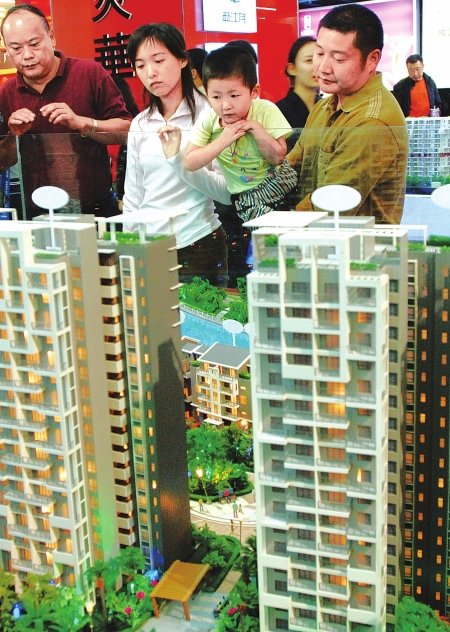China speeds up low-rent housing
China's central government have released a plan to allocate US$5.2 billion to support development of low-rent housing. This is part of China's?ambitious plan vowing to built 36 million welfare apartments in next five years for low-income urban families.
|
|
|
The?newly ready low-rent houses?of Chengdu, capital city of central China's Sichuan Province opens to public in Feb. 17, 2011.?The rent is 2.4 yuan per sq. meter for families with total annal income lower than 28000 yuan?(US$4300).?[China.org.cn] |
The plan was jointly issued by the National Development and Reform Commission (NDRC) and the Ministry of Housing and Urban-Rural Development, according to a statement posted on the NDRC's website Wednesday.
The statement said that the funds would be used to speed up development of low-rent apartments in different localities of the country and gradually relieve housing problems for low-income families.
Local authorities were told to guarantee the proper use of the money and supervise the construction of the low-rent homes, noted the statement.
The Chinese government has vowed to give priority to developing public rental housing, with an allocation of 103 billion yuan in this year's budget for subsidies to support the construction, an increase of 26.5 billion yuan over last year.
Public rental housing is meant for renting of moderate and low-income families.
An upward of 10 million welfare apartments will be built in 2011 and 2012, respectively. Altogether 36 million welfare apartments will be built during the 12th five-year-plan period (2011-2015), said Chinese Premier Wen Jiabao.
Most of the welfare apartments, except those renovated from bungalows, will be used for renting by low-income families, he said.
China issued Administration Rules on Urban Low-rent Housing in 1999 and formally enforced it on March 1, 2004. However,?the construction of China's low-rent housing system is still in an initial stage on the whole, the funds channel instable, the guarantee method imperfect, the coverage small, and the current policy falling short of the requirements of practical development, according to Prof. Nie Meisheng, President of China Housing Industry Association.
 0
0 







